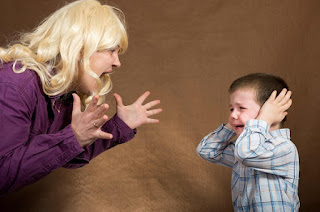You can trace them back to childhood and blame parental failings.
You can say that blaming your parents is a cop-out and you should just work through your hang-ups.
Or you can say that your parents did their best by the standards of the times and so you shouldn't blame them for their failings.
Personally I take the first approach. It's clear to me that my parents sent me to an entirely unsuitable boarding school that didn't equip me properly for adult life and left me emotionally and intellectually under-developed.
I don't think it's a cop-out to blame my parents if it's quite obvious they made a major error of judgment and there's no way they could pin it on anything else. That error is a reality and should be acknowledged.
I also think referring to the standards of the times doesn't absolve my parents. Whatever the standards of the times, they picked an unsuitable school and they should have noticed I wasn't happy, I wasn't thriving, and the quality of teaching wasn't good enough.
Of course if your parents are still alive, you don't want to upset them by telling them they were deficient parents. So you're likely to hide your criticism and pretend they did a great job. Which simply sweeps everything under the carpet.
Falling back on "the standards of the times" is dangerous, as it can excuse all sorts of negative behaviour - like domestic violence, homophobia and sacking pregnant women. Behaviour should be judged by today's standards and not the standards of 50 years ago, as if the following decades of cultural changes never happened.



















